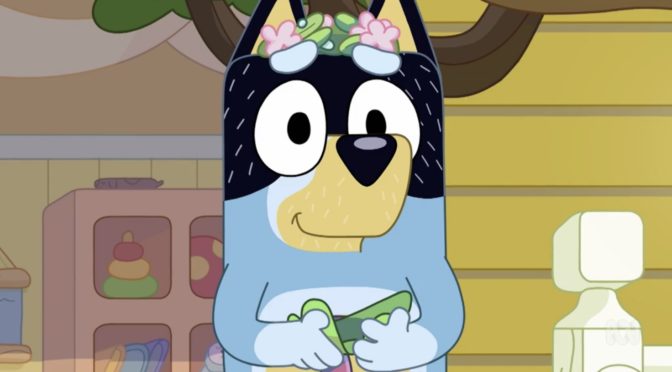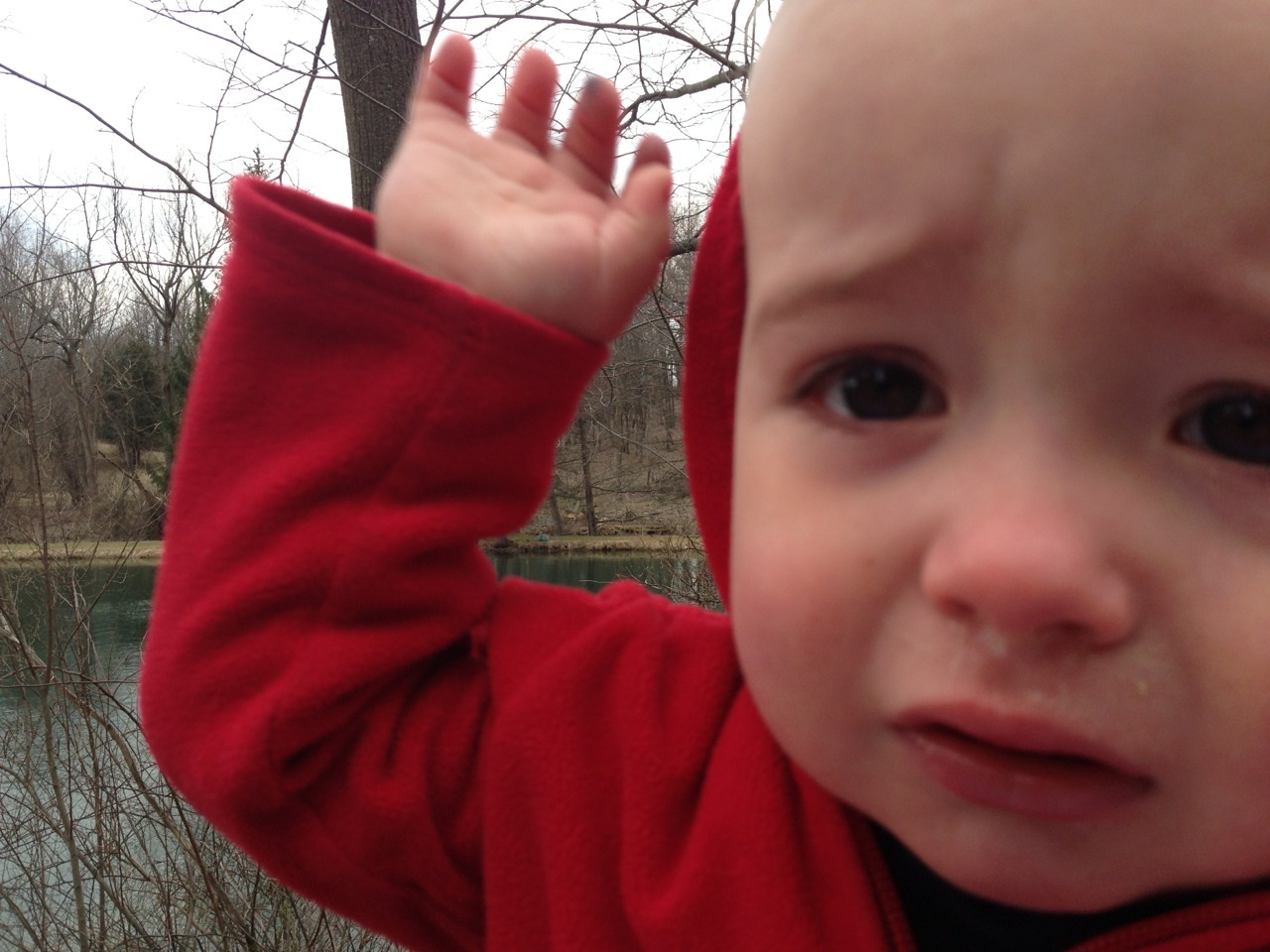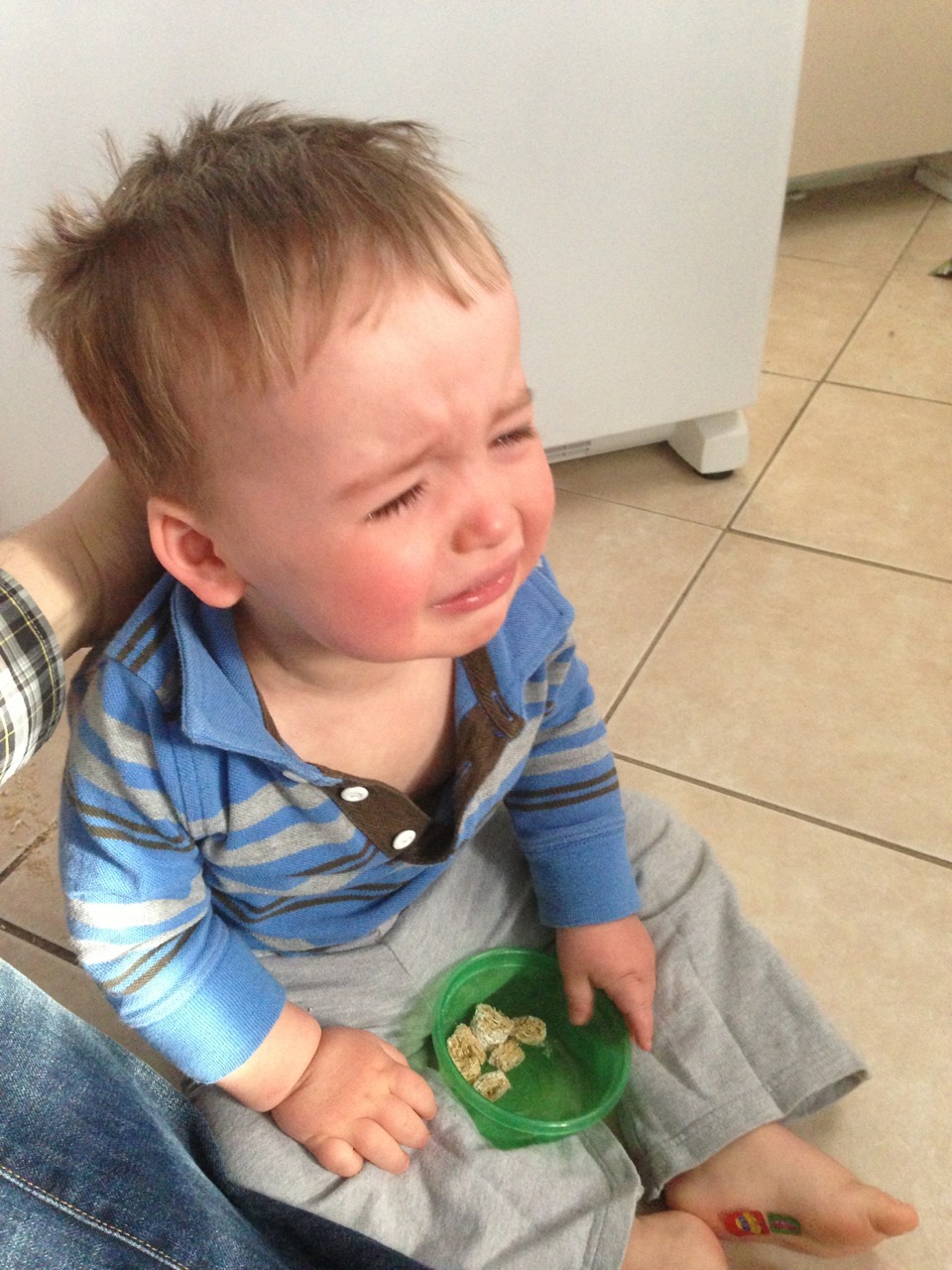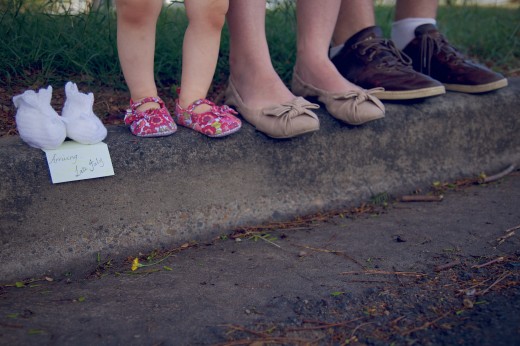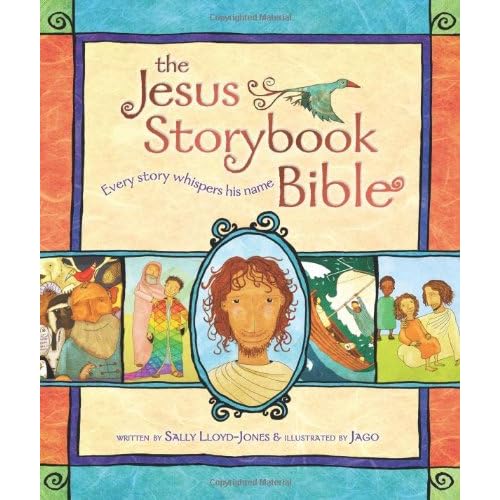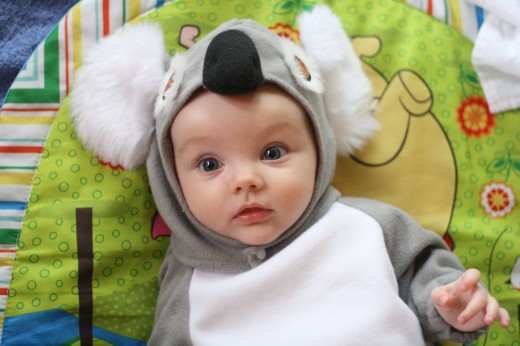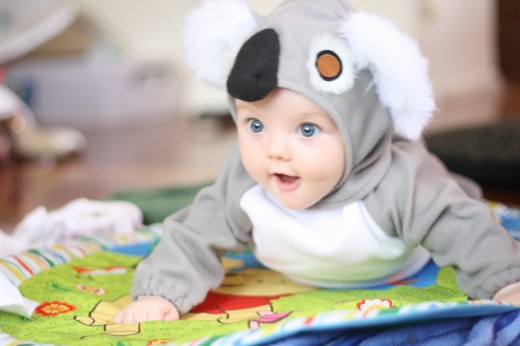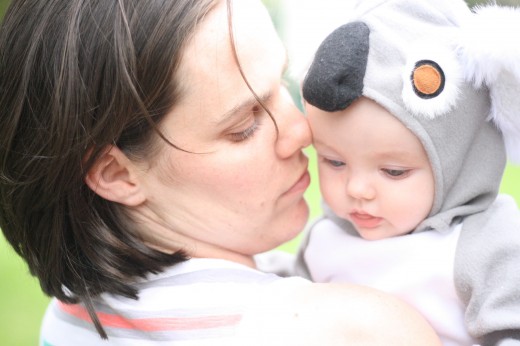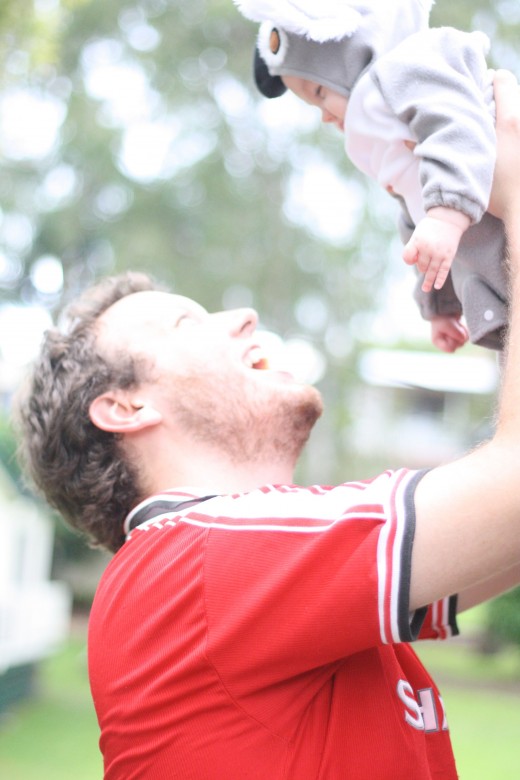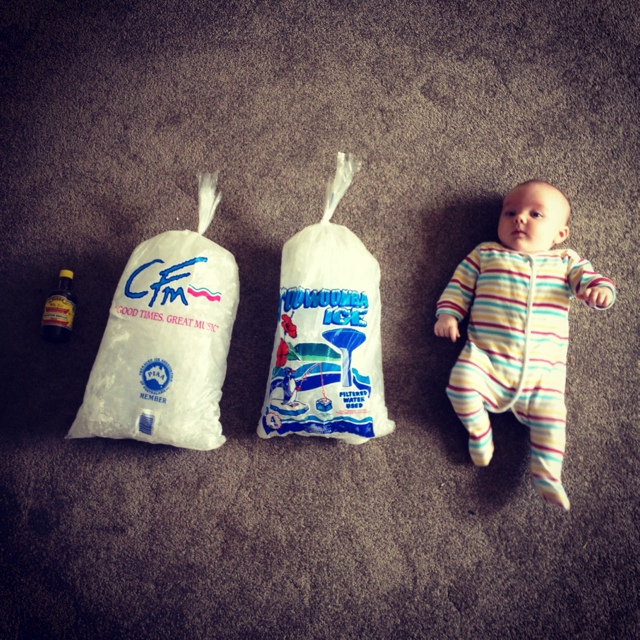If we had a family with kids join us for every time a family with kids said “we’re looking for the best church for our kids,” we’d have a really vibrant community of kids (and adults) in our church. If families with kids had stayed with us every time they said “we’re looking for a church that’ll cater for our teens,” we’d have a really vibrant youth group.
And yet, while we have some faithful and committed families who are part of our church, we’re stuck in a position that so many churches of our size find themselves in — a bit like the small town where people finish school and leave for university — we don’t attract families because we don’t already have lots of families. Families create an attractional pull for other families. And we do often hear those two lines when people are investigating our church, or, when people are leaving. Which, as a parent of three primary school aged kids, can be discouraging.
I’m also sure we’re not alone in this as a church — there are lots of small to medium suburban or inner urban churches out there who feel like they have to compete with megachurch kids programs in order to attract kids and families (or, at least, make a consumer driven case that plugging your kids into a small church won’t leave them worse off).
While I do feel a certain sort of professional and emotional weight around this, and it’s true that I’d love some of those families who say they’re ‘doing what’s best for the kids’ to ‘do what’s best for the kingdom’ because modelling that sort of decision making is actually what’s best for their kids — I also think there’s a short sightedness and a consumerism underpinning some of this approach to church community that is ultimately not what is best for the kingdom of God, and thus, not what is best for our kids. And I think what is best for the kingdom of God is what is best for our kids. This is why we, as a family, are slugging it out in a church where some other families don’t join, or go elsewhere. It’s not because I have to, it’s because I genuinely think this is best (and, we love and want to keep connected to those in our community who are similarly committed).
This isn’t to say that joining our church is the best thing for the kingdom of God, all things considered it probably won’t be… unless you’re a very specific sort of person (like, you live in Brisbane, you don’t already go to a church where you’re embedded relationally, where the Gospel is taught faithfully, and you could put up with me preaching a fair whack of the time), but it is to say that people joining churches that don’t have a whizz-bang already established kids program is good for the kingdom, and joining those churches might be neutral (or worse — and, it might also be great, these churches, at least in our theological niche, often grow because they do things well). If you are looking for the church that is ‘best for your kids’ — then go with ‘what’s best for the kingdom,’ and this might (probably) also mean staying where you are, if where you are is, in your best estimation, a faithful community committed to Jesus as Lord, and to being part of God’s church.
Also, parenting is hard. All of it. Christian parenting adds a degree of difficulty. And, ultimately, I’m hoping this encourages you — parent — to make decisions under less pressure not more pressure. And I’m not about using guilt as a motivator (even if you feel guilty) — I’m suggesting, actually, that re-ordering our decision making towards the character of God’s kingdom, and limiting our choices (and the pressure that comes with them) and trusting God to work through his designs and systems is liberating, and good, and it takes the pressure off for us to ‘get things right’ and appropriately places the responsibility for the life of our children in God’s hands as we show them what it looks like to live for his kingdom, where he rules, not our own kingdom where we rule through choice.
So here’s three reasons to think differently about choosing a church family to join as a family, and three things to consider as ‘criteria’ for doing ‘what’s best for the kingdom.’
Three reasons to think differently about ‘what’s best for my kids’
We live in a world that idolises children, and champions ‘right consumer choices’ as the way to sacrifice to that idol — participating in this world, ultimately, sacrifices your kids
We’re used to making consumer decisions about our kids when it comes to things like schooling. Parents instinctively want what’s best for their kids — and no parent wants their kid to be ‘worse off’ than they were — so our instincts lead us, often, to sacrificing our own flourishing in order to elevate theirs. That feels noble, but, I suspect, for a bunch of reasons it’s misguided (so, for example, the best thing you can give your kids is your presence as a healthy and flourishing person who isn’t absent because you’re working to pay for their education).
One of the features of modern western life is that we’ve lost a sense of ‘meaning making’ coming from something supernatural and beyond us, so we assess the parenting challenge in physical ‘here and now’ terms. We’re also not, culturally, great at long term thinking or delayed gratification. And we’re obsessed with technique and technology. Because part of the ‘meaning making’ enterprise is about figuring out what is ultimate, our culture has replaced God (or supernatural things) with natural things that we think are really valuable. Often this means we’ve turned very good things like marriage and family, and specifically our kids, into the ultimate source of meaning and significance in our lives. This is a form of idolatry. We Christians are often ‘syncretists’ — we try to have our supernatural God, but also have little altars to a variety of other gods from our culture (money, sex, marriage, children), we also often bring in the liturgies, or religious practices, of our neighbours with those altars — so Christianity has become just another ‘consumer option’ for us where we can express our authentic individuality and identity by making personal choices (including the choice about what church to belong to — this really is a very new thing in the history of the church, that is both a product of various schisms in church life, mostly after the Reformation (creating lots of choices), and the invention of the car (and later, the internet), so that we don’t have to ‘stay local’ but can find a community that best reflects ‘me’ and ‘what I think already’ and can give me ‘what I want in a church.’
To participate in idolatry — rather than the kingdom — requires sacrifice (the sort you make to deliver your kids ‘their best life,’ whether educationally or in terms of what church you choose. But making church another consumer choice in the quest to give your kids their best life, if it’s part of an idolatry you’ve caught from the world, will ultimately sacrifice your kids as you teach them that the good life is found in consumer choice, and in sacrificing for your kids — rather than in serving in God’s cross-shaped kingdom.
The choice about what church to attend that is ‘best for my kids’ is an expression of lots of what is wrong with the modern world, one way to do what’s best for your kids is not to choose a church based on ‘what’s best for you’ but a church where you can best serve and contribute to the life of the kingdom of God as a family, as you become part of a community. It’s to minimise choice, or taking, and maximise service or giving. In that decision (which is also a choice, though a choice to limit your unfettered individual freedom) you are also modelling something to your kids.
The program driven ‘attractional’ kids ministry feeds that idol, and forms consumers
In the mid 20th century a bloke, Donald McGavran, returned from the mission field in India to his home country, America. He realised the America he left was no more, and that America was now a mission field to be reached by missionaries. Nothing wrong with that. McGavran’s solution was to look to the surrounding culture for tools and techniques that could be used to reach people effectively. He’s the father of the ‘church growth movement’ and the adaptation of corporate practices (and metrics) like marketing and creating programs that ‘attract’ different demographics. The catch with this model is that the forms we use actually form us; the medium is the message. So when we make kids church, or Sunday School, programs that either imitate the school classroom or The Wiggles, or some form of kids entertainment product in order to attract kids (and families) we actually produce a certain type of thinking and action, and thus form our kids into certain types of people. There are as many problems with embracing the form (and pedagogy) of the modern school room as there are with embracing the form of an entertainment program. But if you’re choosing a church because of the program it offers your kids, rather than because of the community you and your children are joining, then I think you’re not actually doing what is best for your kids, or the kingdom, but you are perpetuating a broken system that breaks people.
This isn’t to say churches shouldn’t have kids programs, or be trying to teach content to children — of course they should — but we should be careful in our choices about those programs not to be investing in unhealthy models of church. The catch for many churches is that there’s a ‘keeping up with St. Joneses’ effect that happens here, where, in order to survive (and to be seen as thriving) a church feels like it needs to invest heavily (in energy, time, and money) to build a program people will come to; and they do — because we do.
A ‘big program’ with lots of peers isn’t what produces ‘resilient disciples’
The other trap we fall into is thinking that ‘what’s best for my kids’ is having lots of peers around them (and I’m including me in this, I often despair that there aren’t more kids the age of my kids in our church family). I value my Christian peers in childhood. Having kids my age who were my friends, who I loved, was a big part of the ‘plausibility structure’ for the Gospel for me, at least inasmuch as I can accurately describe my thinking. But having parents who taught and modelled the Gospel was even more important (thanks mum and dad). And, the research suggests (and this research exists, and I’ve written about how our church is grappling with it here) that peers aren’t the best predictor for kids who become ‘resilient disciples’ as adults — and neither are programs — the best predictor is actually relationships and a commitment to formative Spiritual disciplines like prayer, Bible reading, serving, and participating in church community. The best thing you can do for your kids is actually connect them to a genuine community of Christians where they are included, where they ‘walk the walk, and talk the talk’ beside others — not just other kids — but adults who are actively involved in their wider (church) family life.
Three things to look for in a church
Adults/mentors who aren’t you (parent) who will invest in and model the Gospel and wisdom to your kids for the long term
We live in a world of instant gratification, where people cut and run from things that are hard, or to choose things that look shinier. We live in a constant state of ‘present shock‘ — that’s the title of a book that describes our present moment as one where “rather than focusing on building a better future, society is primarily concerned with building a worthwhile present.” This thinking — rather than long term thinking — is part of the hunt for silver bullets around church; both for pastors and leaders, and for attendees. It’s a toxic and vicious cycle; and, in the face of this vice, we should rediscover virtue, and the long, hard, slog of character building being what’s at the centre of discipleship. The great commission to ‘make disciples’ is not a command to fire silver bullets to facilitate the instant of conversion — it’s a call to a long hard slog of life in Christian community where we teach one another the truths of the faith, and call one another to follow the example of Jesus. And this is also true for parenting, and discipling children.
Aristotle, one of the founding fathers of ‘virtue ethics’ said things (in his Nicomachean Ethics) like “I say that habit’s but a long practice, friend, And this becomes men’s nature in the end,” or “Virtue, then, being of two kinds, intellectual and moral, intellectual virtue in the main owes both its birth and its growth to teaching (for which reason it requires experience and time), while moral virtue comes about as a result of habit, whence also its name (ethics) is one that is formed by a slight variation from the word ethos (habit),” and “It makes no small difference, then, whether we form habits of one kind or of another from our very youth; it makes a very great difference, or rather all the difference.” He also said we need a community of neighbours whose virtuous actions we can observe and contemplate, and a community who will prompt us towards continuous action shaped by a commitment to the good and virtuous, or that “A certain training in virtue arises also from the company of the good.” There’s something Proverbial about all this — it sounds a lot like ‘train a child in the way they should go, and when they are older they will not depart.’ Character is destiny (as a different Greek philosopher, Heraclitus, said).
Aristotle was big on formation of virtue in community — but so is the New Testament. And the best people to train our kids in Christian virtues aren’t peers; and it might not just be parents (though that’s part of parenting), it’s people who are more mature modelling the maturity caught up in the example or way of life of Jesus. The best thing you can give your kids is not a church with a good set of programs, and peers — it’s your example of deep, long term, commitment to Jesus and to his bride, the church. The next best thing is a church community you’re connected to where that example is lived out not in abstraction, but in a way that is connected with your kids and their lives, and that is presented as a good, wise, and compelling.
The book Faith For Exiles, that I dig into in the link where I outline how we’re tackling kids ministry, suggests it’s actually these relationships, in a Gospel soaked community, that produces resilient disciples; and it’s the production of resilient disciples that is what is best for the kingdom (and your kids).
Teaching and communal life shaped by the Gospel that is compelling and engaged in calling out, and deconstructing, alternative stories about ‘the good life’ and counterfeit gods
That series of Aristotle quotes had a point and a payoff beyond that last one — Aristotle made a useful distinction between ‘intellectual’ and ‘moral’ virtue — think ‘knowledge’ and ‘wisdom’ — or ‘right information’ and ‘right action’ — and both are important, and they integrate. For Christians this looks like ‘doctrine’ and ‘life’ being aligned — which is what Paul tells Timothy maturity in the church looks like, and how he’s to be an exemplary leader in the church.
The best thing you can do for your kids is plug them in to a church community that teaches the truths of the Gospel (doctrine) in compelling ways (including ways that connect with how we work as people who process information best as stories, not just factoids, and who have bodies, and emotions, who learn from experience, in relationships, and environments shaped to reinforce beliefs and actions), and a community where this doctrine is put into practice in a compelling and inviting way that (y)our kids want to imitate. If a church isn’t teaching your kids the Gospel, but is just giving moral lessons based on characters in the Old Testament, then it is not best for them, no matter how flash the program is, or how many peers are helping them with that morality (or wisdom). Kids need to be formed by the story of Jesus, not by the law presented by a faux-Blue Wiggle, or a talking carrot. But they also need to be hearing why other religious stories — including morality tales, but also including the ‘counterfeit gospels’ they’re hearing about individual choice and freedom in the schoolyard, or on YouTube — are not good news.
Part of this is a thing Faith For Exiles suggested was important — helping kids develop their cultural engagement muscle in the face of false narratives about life, and false gods. It’s tricky to do that if, in our choices about church community, we’re buying into the kinds of idolatry outlined above. Our forms, or medium, end up undermining our message. The best medium is lives — a community of lives — plausibly living out a better story.
A community that sees kids as part of God’s family and encourages them to actively participate (and serve) as disciples of Jesus
This one is a challenge for our church as much as for any. Kids aren’t just an afterthought. Sunday School (or whatever you call it) isn’t just child minding. Kids are part of the family of God — Paul writes to them in the New Testament with the expectation that the Gospel is shaping their lives (and probably that they’re hearing all the stuff he’s had to say in his letters, not just the bits where he speaks directly to them). When he does, it’s with an expectation that they will act in accordance with the truths of the Gospel (specifically, in Ephesians, for example, it’s an instruction to obey their parents, who, presumably are teaching them the Gospel in word and deed as they ‘submit to one another’).
When Paul says this: “Therefore, I urge you, brothers and sisters, in view of God’s mercy, to offer your bodies as a living sacrifice, holy and pleasing to God—this is your true and proper worship,” there’s no reason to think he’s excluding kids from this formative practice — this picture of worship that is then connected to what he says in the next sentence: “Do not conform to the pattern of this world, but be transformed by the renewing of your mind. Then you will be able to test and approve what God’s will is—his good, pleasing and perfect will” (Romans 12:1-2).
The best way to stop our kids becoming consumers — beyond not being consumers when it comes to the church we choose ‘for their sake’ is to connect to a church that will encourage them in the habit of serving Jesus as part of the body of Christ. Offering themselves as part of the body of Christ, in view of God’s mercy to us, as our ‘spiritual act of worship’. The best thing you can do for your kids is not find a church where they can be catered to with a good product, but lead them in worshipping the king who sacrificed everything for their sake and calls us to take up our cross daily and follow him.
Helping our kids do that is what’s best for them — if the Gospel is true — and what’s best for the kingdom.
